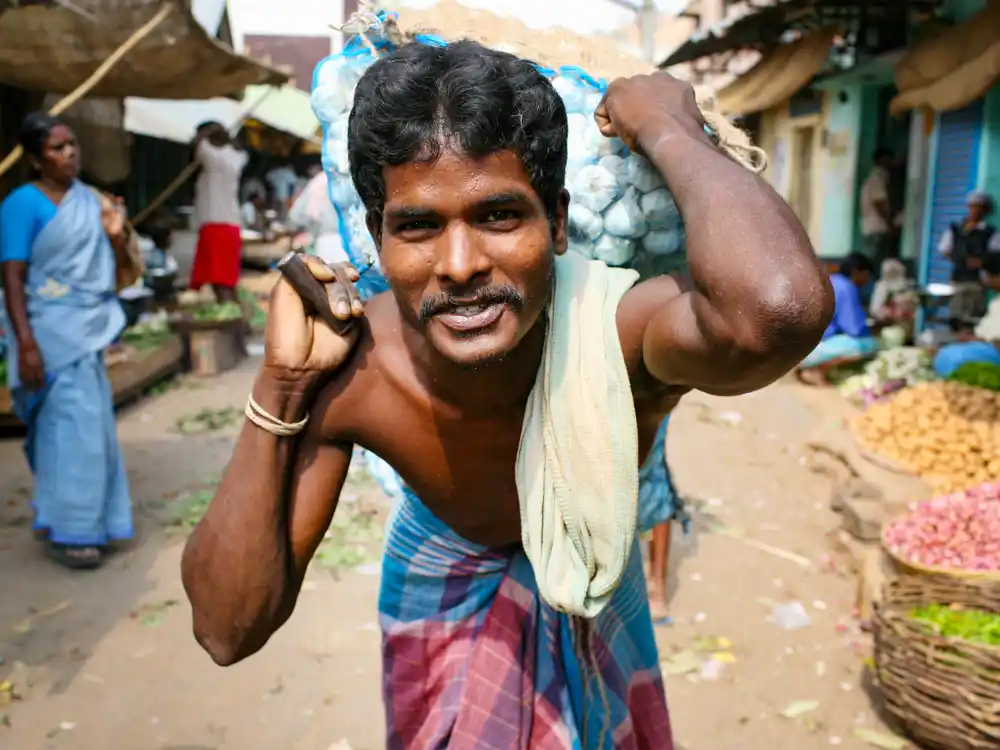Every afternoon, after I’d scraped the last grains of rice and curry from my banana leaf in the Ramana Maharshi Ashram, I’d rush off once again in Rajesh’s tuk-tuk to chase the street chaos and sacred grandeur of Tiruvannamalai — a place where spirituality has truly mastered the art of marketing. I breathed in the life and noise of Tiruvannamalai: Streets of the Holy City, where meditation sometimes feels more like survival. The streets serve you stories, existential musings, bursts of color, spontaneity, raw authenticity, and that unshakable genius loci.
Tuk-Tuk for 50 Rupees and Raw Reality
My driver Rajesh, a guy with a motorcycle tuk-tuk, drove me downtown every evening. No helmet. A grin. A cigarette hanging from his lips. Lungs wrecked from three decades of life. And a story to tell. Because in India, everyone has a story — the water seller, the coconut guy, the woman embroidering floral saris all day, the street barber, even the kid offering to shine your shoes with spit and hope.
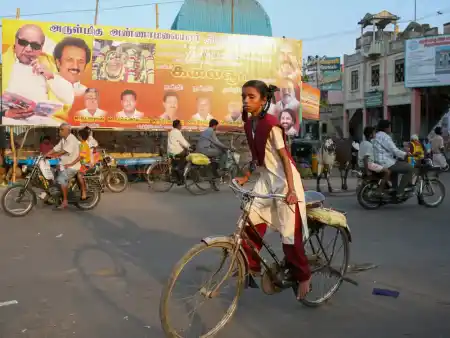
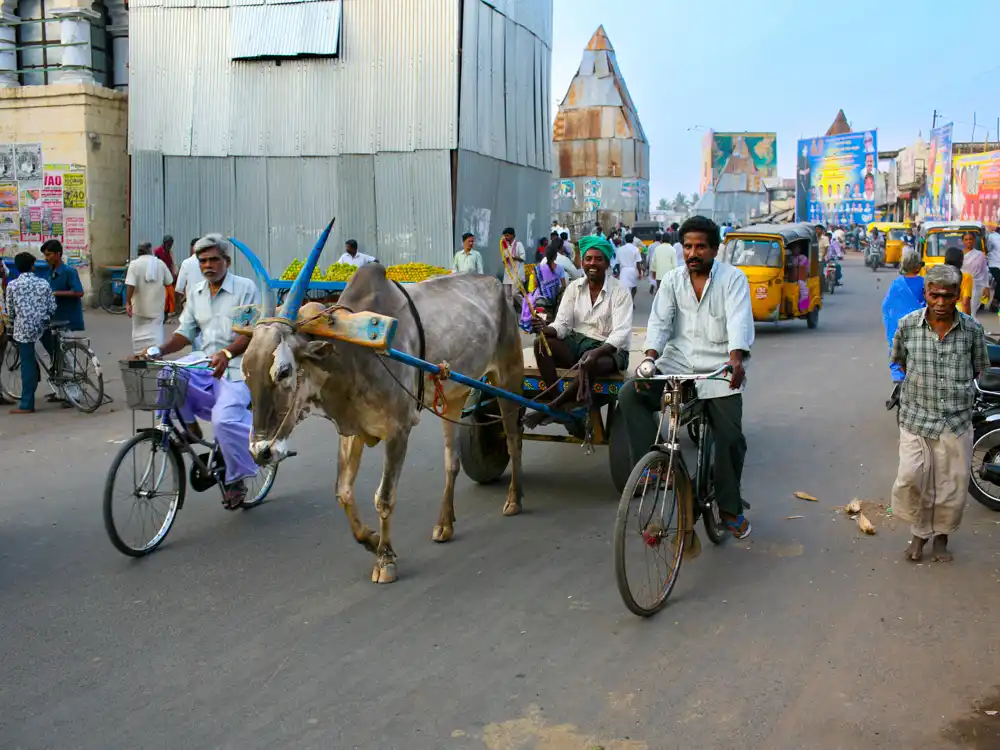


Tiruvannamalai’s streets aren’t just a temple symphony — they’re an opera without a plot, where the background extras all somehow star in a drama called daily survival. For any European, it’s unforgettable.
Markets of Tiruvannamalai
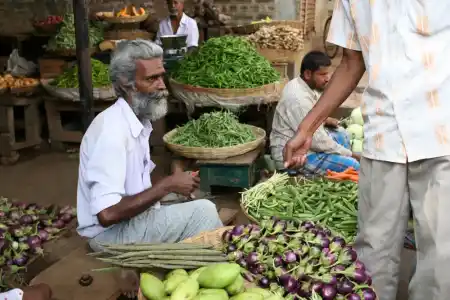



The market is where happiness is sold by the kilo. Got cash? You can even get a forehead blessing with your mangoes. Indian markets are pure theatre — no intermission. Colors scream. Chillies, turmeric, saris, kites, plastic toys, perfumes, incense — all shouting, “Buy me! You don’t need me, but still!”
The women there? Artists of chaos. An old Tamil woman sits cross-legged with 84 types of spices laid out. She can’t read, but she knows each smell so precisely she’d embarrass half the chefs in Europe.
Haggling is ritual. Buying is an exchange of energy. And every vendor is a philosopher. I once asked a fruit seller why the mango was so expensive. He replied, “Because it’s hot today and everyone wants mango. You don’t need it. You just desire it.” He hit my ego hard. I bought two.

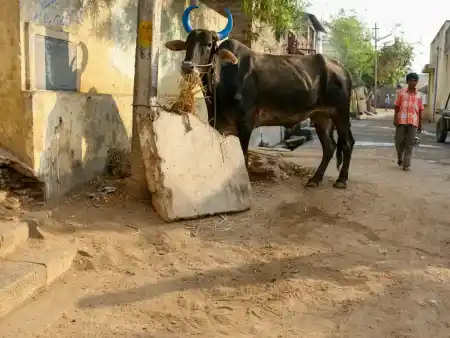
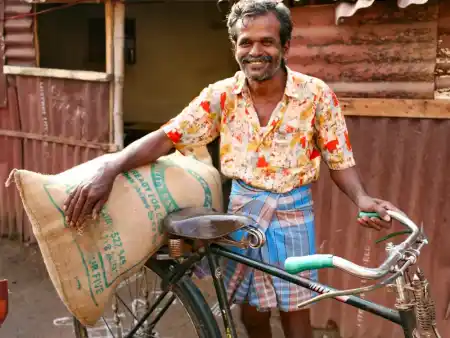

The Streets of Tiruvannamalai
If you think Paris is busy or Naples chaotic, you’ve clearly never tried crossing the streets of Tiruvannamalai on foot. In Europe, we have crosswalks, traffic lights, traffic rules, and occasionally even a polite driver who lets you cross. In India, you have… a horn. And everyone uses it. Buses, rickshaws, scooters, tuk-tuks, cows, even peanut vendors who don’t have horns but yell endlessly: “Peanuts! Fresh peanuts! No diarrhea!”
Traffic lights? None. Zero. Intersections here are vague spirals around a trash-covered drain. And somehow, I never saw a crash.
Mornings sound like Wagner’s grand finale: honking, barking, whistling, mooing, and someone is already cooking curry on the sidewalk. Someone’s fixing shoes next to a guy opening coconuts with his teeth, while another soul repeats like a Buddhist monk: “One rupee, one rupee, please sir, just one rupee…”
The smell? A cocktail of incense, burnt oil, and nine generations of sweat. Add a hint of sweet chai — which they insist you drink even if you didn’t ask — mixed with exhaust fumes from a motorcycle overtaking a literal elephant. Yes. A real elephant.
Side note: you can still buy those iconic one-cylinder Royal Enfield 700cc diesel bikes here for dirt cheap.
Transport at Tiruvannamalai

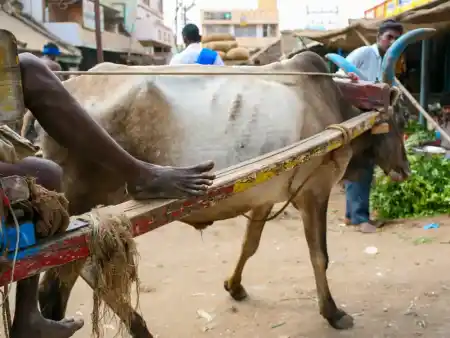

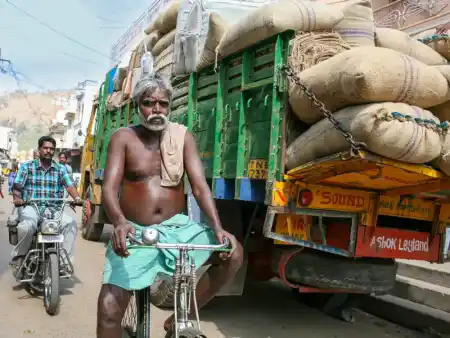
I remember once, as I tried to leap into Rajesh’s tuk-tuk (which slowed just enough to force me to choose between dying or jumping), an old man grabbed my wrist mid-intersection and asked: “From where you come, sir?”
“Slovakia,” I answered.
He nodded in every direction at once, smiled, and said: “Good country. Not better than India. But good.”
And right then I realized — the chaos isn’t a flaw in the system. It IS the system. Tiruvannamalai doesn’t play by the rules. It plays for survival. And somehow, it works. Like an orchestra without a conductor — where even beggars keep the rhythm and the guy selling lighters gets a solo. You just have to accept that everyone plays at once. And loud.
Caste and What’s for Dinner
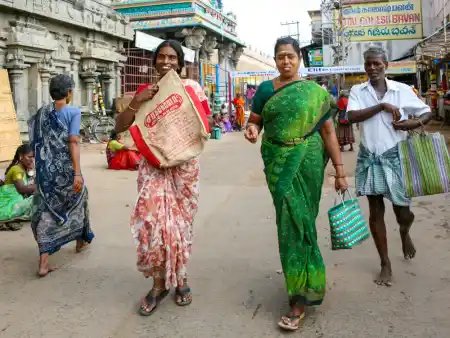


One evening, I sat on a curb with Rajesh. We were eating fried dough with curry (he picked it himself from a street vendor) and I asked him what caste he was from. He laughed, then went quiet.
“Here, we don’t ask,” he said. “But you know by what your father does, who you can marry, and who serves you.”
In Tiruvannamalai, there is no equality. There’s a beautiful illusion of spiritual unity. But if you’re born untouchable, you stay that way — even if you chant mantras 24/7 or bathe monthly in sacred, bacteria-rich waters.
The West: Sterility vs. Surplus
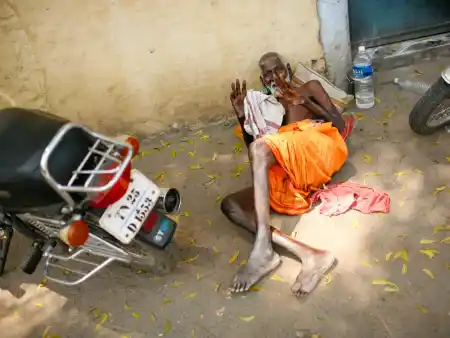

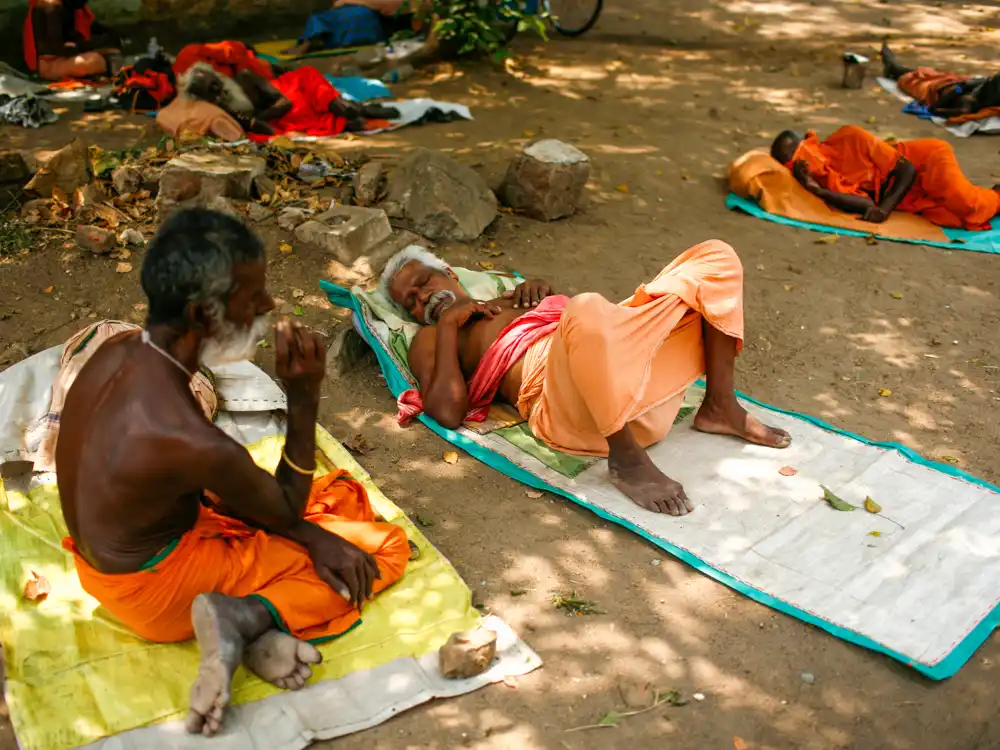
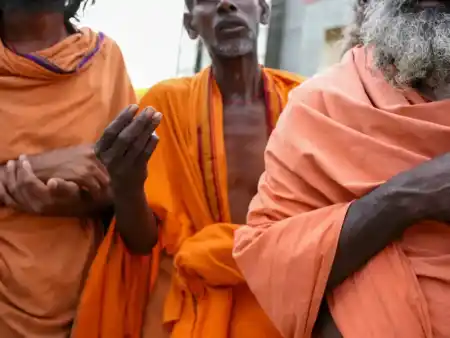
Tiruvannamalai’s streets started to get under my skin. I returned to the ashram and watched the white spiritual seekers — mostly Europeans and Americans. Yoga mats. Satchels full of mantras. Probably loaded bank accounts. Laptops with enlightenment manuals. And I remembered the child at the market selling lemonade he couldn’t even taste — because it was for tourists.
We in the West live in cleanliness, order, calorie-counting, and structure. Here, people sometimes drink from the same well they wash their feet in. Yet at night, they dance. Their laughter is raw. Their saris more vibrant than anything in our wardrobes.
What Makes a Person Happy?
Not luxury. Not a fridge. Maybe it’s the ability to laugh even when your world is burning. When your belly’s empty. When everything’s against you. Or maybe it’s that you don’t wait for happiness — you live in it, even when it’s dressed in dust.
Out on a rice field in Kerala, I once felt it. Maybe I was already in paradise.
Done. My notes from Tiruvannamalai end here. But the questions linger.

